Searching for a fish vet near me? We’re here to help! Here at Sandhole Vets, we understand that your fish is not disposable just because it doesn’t fall into the most common categories of a traditional pet. Our services range from consultations and health checks to diagnosis, treatments, and even surgeries, as required.
Sandhole Vets, located in Kent, specialises in exotic veterinary care, with a team of vets and nurses that are both certified in exotic species of pets, including fish and other aquatic animals. Our team is trained to diagnose and treat a wide range of illnesses and injuries that affect fish, including bacterial and viral infections, parasitic infestations, environmental stressors, and more.
So, if you’re looking to find a fish vet near you, look no further than Sandhole Vets in Kent.
Specialist Fish Veterinary Facilities Near Me
As a part of our specialist facilities for treating exotic pets, including fish, the team here at Sandhole Vets, Kent, have access to:
- Specialised exotics laboratory.
- State-of-the-art digital radiography.
- Dedicated facilities for housing aquatic and semi-aquatic patients.
- Full range of specialist dentistry equipment, including a high-speed diamond burr.
- Specific surgical instruments and equipment for exotic species, including fish.
- Sevoflurane anaesthesia and ventilator, which is vital for exotic anaesthesia.
- In-house testing for blood, urine, and faeces.
- Rigid endoscopy.
- Specialist ultrasound.
- Tailored, species-specific foods.
Preventative Fish Health Care
Here at Sandhole Vets, Kent, we always say that prevention is better than a cure in most circumstances. This is why we recommend regular health check-ups for your pet, no matter the species. By bringing your fish to regular health checks, we can identify potentially developing conditions early enough to maintain your fish’s general health.
Preventative fish vet care involves taking steps to maintain the health and well-being of fish and other aquatic animals, in order to prevent illness and disease. This can include a variety of measures, such as proper nutrition, environmental management, and routine health check-ups. We even offer specific services like fish dentistry!
We also recognise the importance of examining both the animal itself and its environment, such as the aquarium, in aquatic cases. This is because the health of your fish and its environment are extremely closely linked. Please bring your fish in a suitable container and provide a sample of their tank water for testing if required. You will also need enough extra water for the fish to be taken home in a clean water source. If you have any questions prior to your referral appointment, please contact the team at 01634 242502 for advice and guidance from our specialist aquatic veterinarians.
Beyond initial consultation, if treatment is necessary, our team is trained to diagnose and treat a wide range of illnesses, disorders, and injuries that specifically effect fish, including bacterial and viral infections, parasitic infestations, and environmental stressors.
In terms of routine fish health care, we can also give medication or for recurring medicines, train an owner in the best methods to deliver medication at home where appropriate, in order to limit additional stress.
Some specific preventative care measures that fish owners can take include:
- Maintaining proper water quality: Ensuring that the water in the aquarium or pond is clean, well-aerated, and at the appropriate temperature is essential to the health of fish. Regular water testing can help to identify and address any imbalances in pH, ammonia, nitrite, and nitrate levels.
- Providing a balanced diet: Feeding fish a balanced diet that is appropriate for their species and age can help to prevent nutrient deficiencies and other health problems.
- Quarantining new fish: When introducing new fish into an aquarium or pond, it is important to quarantine them for a period of time to prevent the spread of disease.
- Monitoring for signs of illness: Regular health check-ups and observation can help to identify any signs of illness or disease early so that treatment can be started as soon as possible.
- Working with a fish vet: Establishing a relationship with a qualified fish vet can help to ensure that fish receive routine preventative care, as well as prompt treatment if any health problems arise.
By taking these and other preventative measures, fish owners can help to maintain the health and wellbeing of their aquatic pets and minimize the risk of illness or disease.
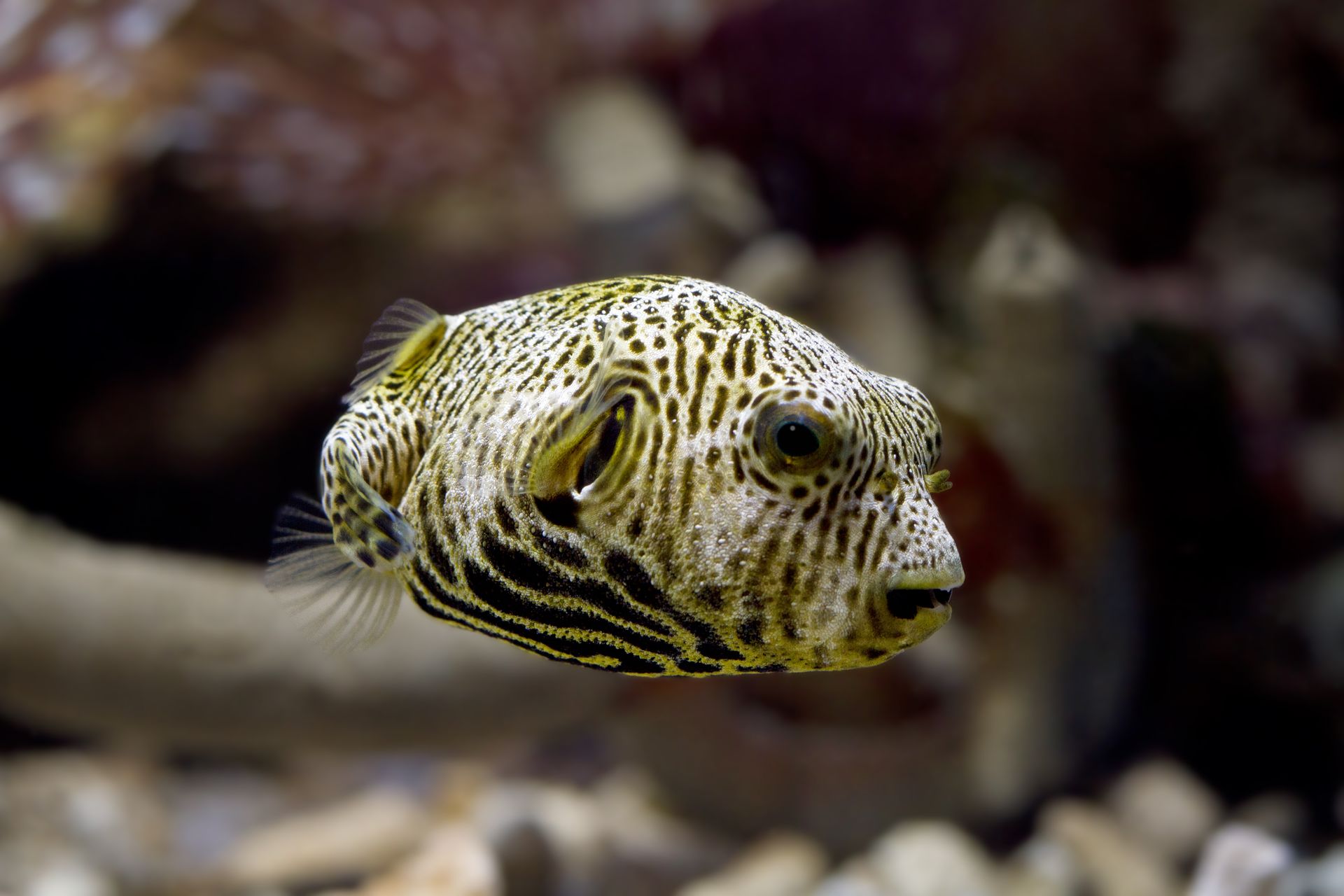 |
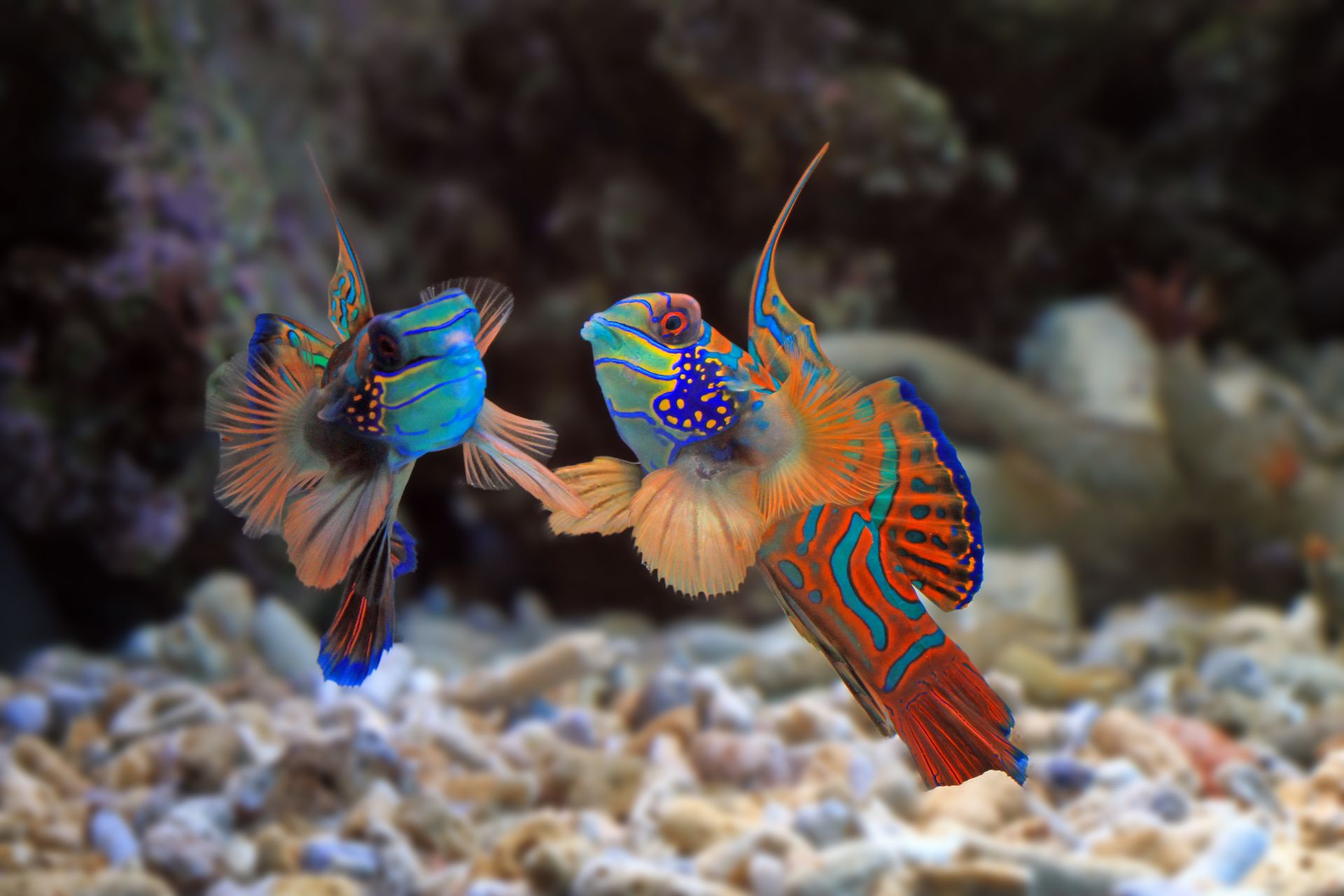 |
Case Study: Pufferfish Saved by Dental Procedure at Our Kent Veterinary Practice
Recently, Goldie, the porcupine pufferfish received dental treatment at Sandhole Vets in Kent. Her tooth or ‘beak’ had become excessively overgrown, causing difficulty in eating food. Dr Daniel Calvo Carrasco and vet nurse Debbie Addison carried out the rare procedure, trimming down the fish’s tooth. During the procedure, Goldie was given fish-safe anaesthesia and held in a damp towel, intermittently being placed back into the water to ensure her safety.
Dr Calvo Carrasco cut through Goldie's beak with a dental burr, and the procedure was completed in under an hour. Goldie recovered from the anaesthesia in a second container with water from her home tank and was back home and eating within two hours – now happy and healthy!
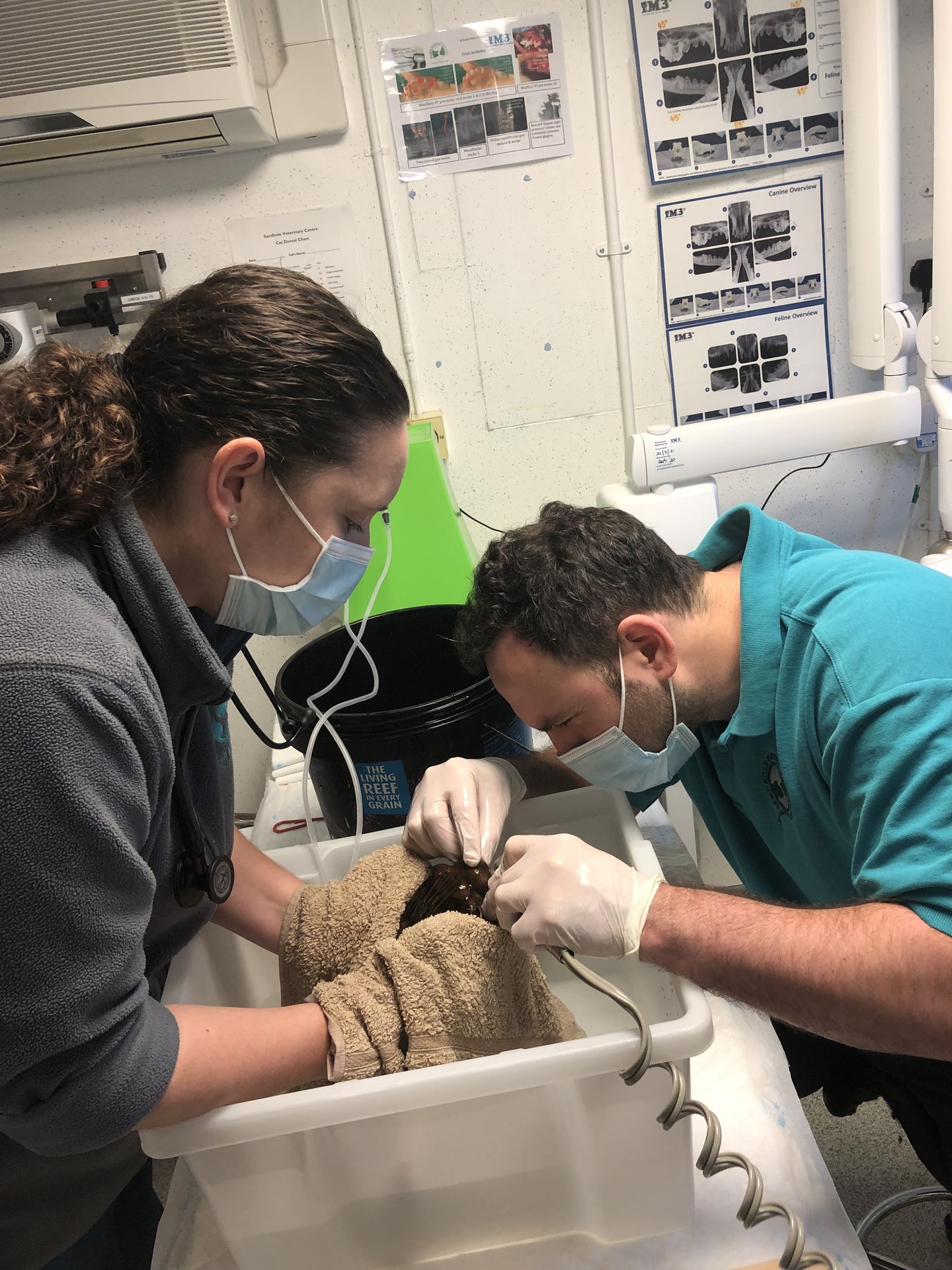 |
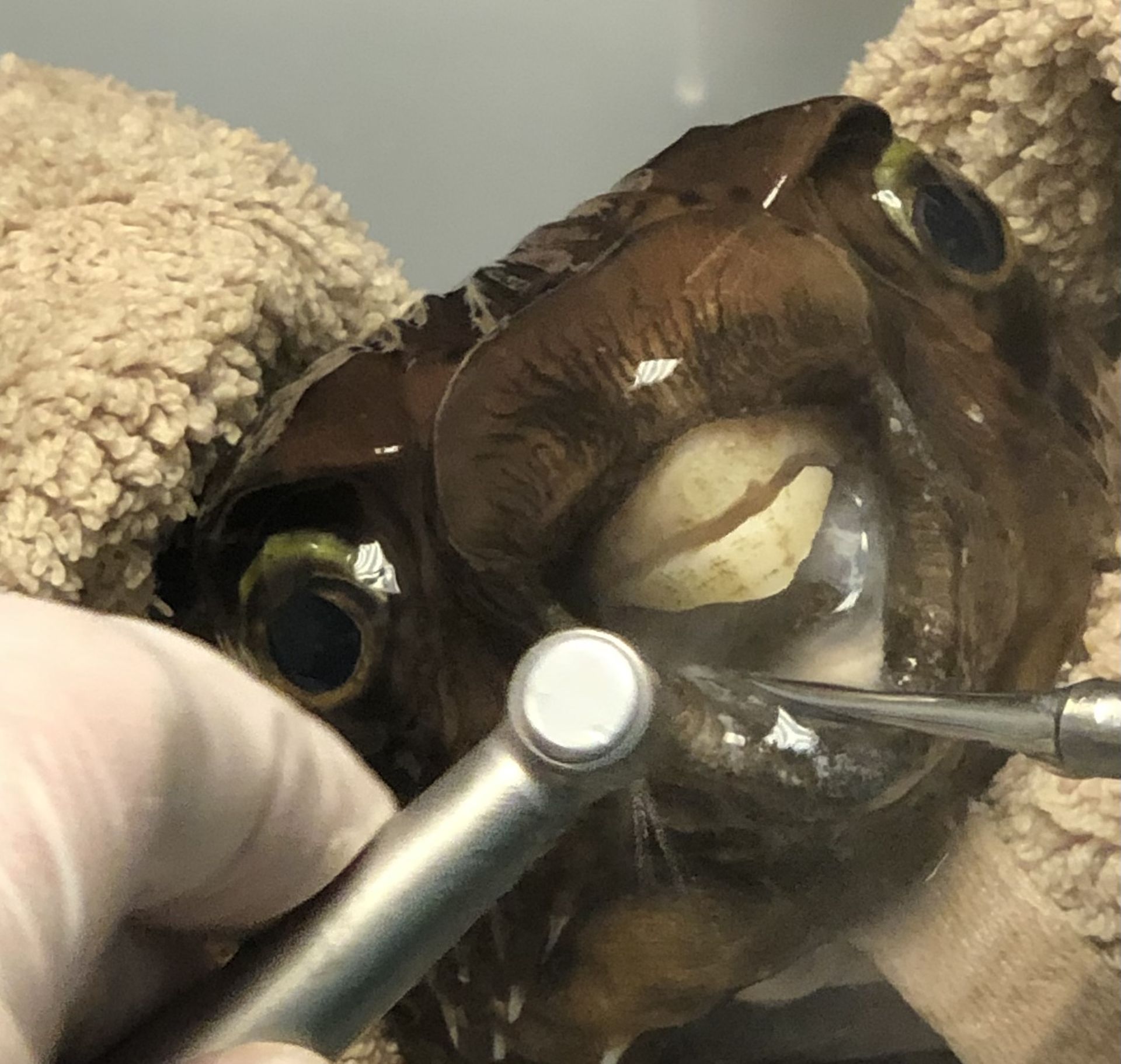 |
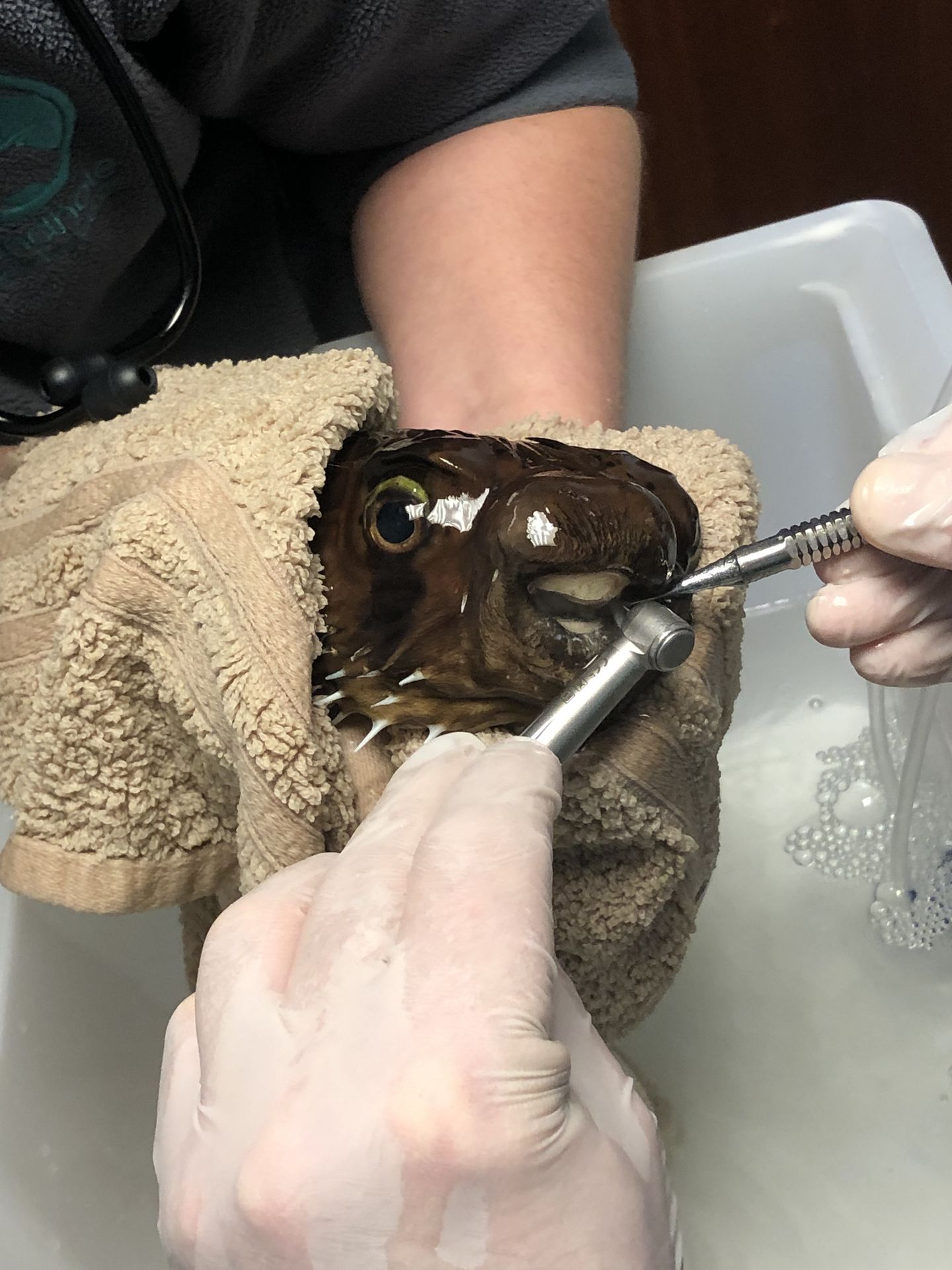 |
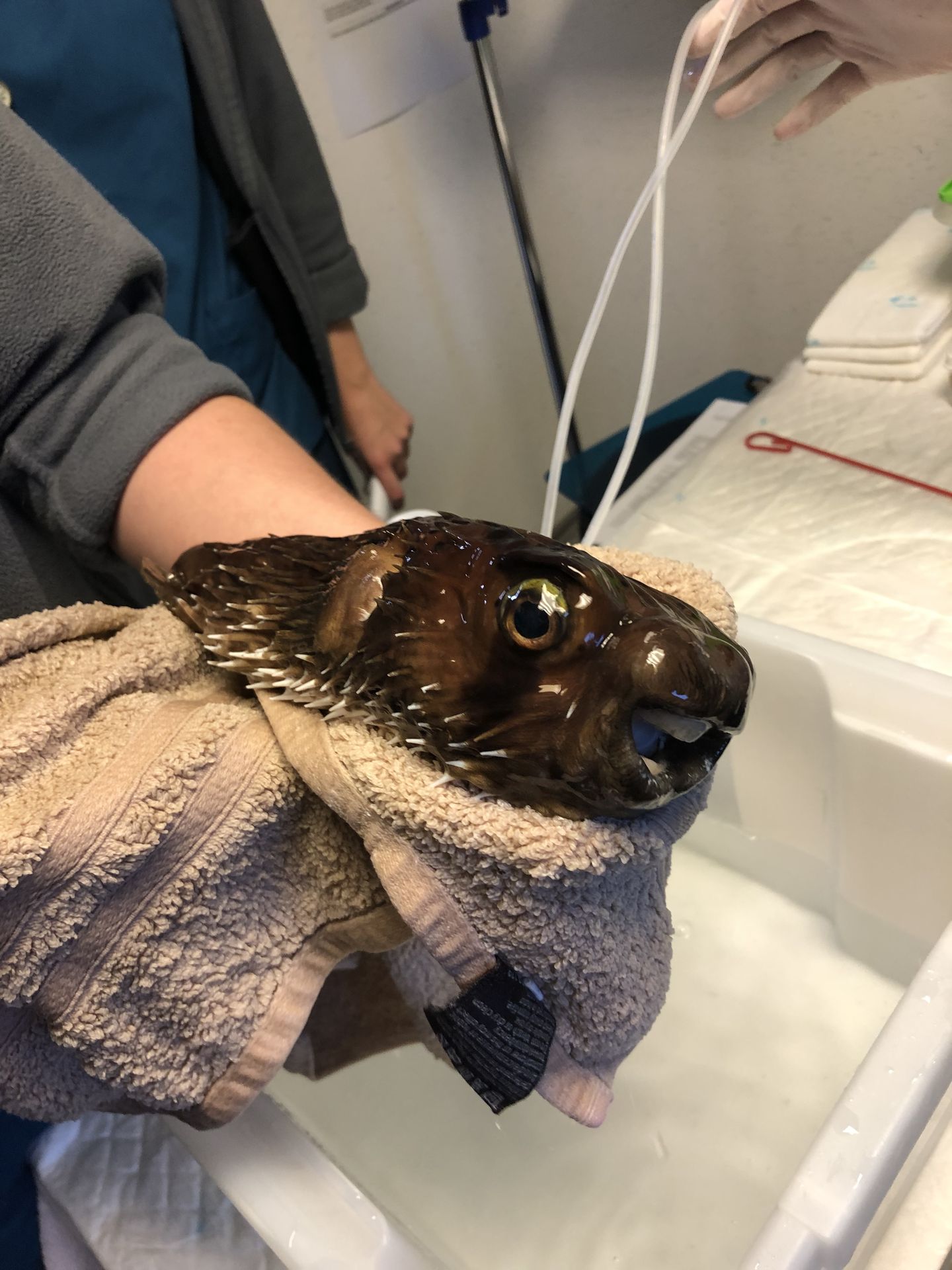 |
Signs of Illness in Fish: When to Call a Fish Vet Near Me?
If your fish is unwell, much like any other pet, the best thing you can do for them is to call your veterinarian. However, in this case, it’s also important to ensure that your vet offers specialist care for fish and other aquatic animals, like Sandhole Vets, Kent, in order to provide your fish with the best possible care.
Some signs of illness in fish are a bit different to other animals, and much like other animals they cannot communicate directly with us if something is wrong. Therefore, it’s important to take time to understand how fish show signs of illness so that you know exactly what to look out for. Getting to know what’s ‘normal’ for your fish, will also help you spot when something is different and might be wrong.
Common signs of illness in fish include:
- Not eating or eating less than normal.
- Weight loss.
- Lethargy.
- Swimming erratically or in unusual positions.
- Drifting or floating.
- Rapid or slow breathing.
- Loss of colour or discolouration.
- Spots.
- Scars.
- Scales standing up or sticking out.
- Loss of scales.
- Open sores or ulcers.
- Bloating or swelling.
- Growths: puffy/ fuzzy, tumours, or cysts.
Generally, if you’re noticing something different in the eating or swimming behaviour of your fish, or their overall appearance, such as their colour or general body condition, then it’s better safe than sorry. Call our specialist fish vets for advice today.
Help With Caring for Your Fish: Dietary and Husbandry Advice
Regrettably, our experience shows that up to 95% of illnesses in exotic animals, including fish and other aquatic animals, stem from incorrect husbandry, despite the owner's best intentions.
As a result, we are delighted to provide free follow-up consultations with our exotic pet nurse. We are happy to assist you with any queries you may have about feeding your fish the appropriate diet, creating an enriched environment, or properly housing them.
To schedule an appointment with an exotic veterinarian in Snodland, Kent, please contact Sandhole Vets at 01634 242502.
Where to Find Sandhole Vets, Kent
Practice Details and Address
Sandhole, Snodland, Kent, ME6 5LG, UK | Phone: 01634 242502 | Email:







